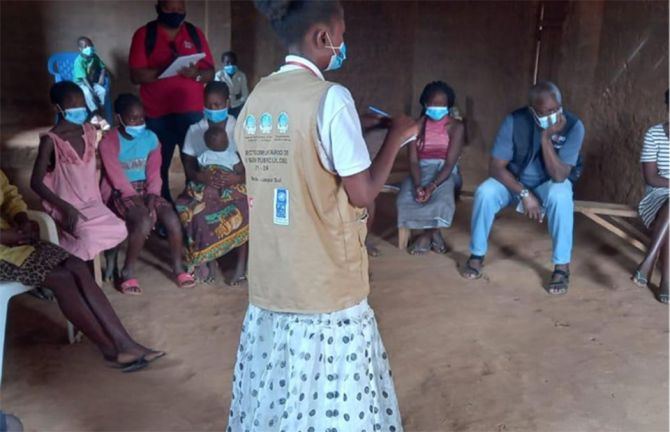

Feature Story
Review recommends law reform on HIV testing to help Angola reduce new HIV infections among young people and ensure treatment
11 May 2022
11 May 2022 11 May 2022Angola faces a considerable challenge of new HIV infections among young people. In 2020, there were 7000 new HIV infections among young people aged 15–24 years. One of the barriers to reducing new HIV infections among young people and ensuring treatment are restrictions on their ability to get tested to learn whether they have HIV.
As in several countries, young people under the age of 18 years cannot be tested for HIV without first asking their parents to consent to it. As young people often fear discussing HIV testing with parents, many decide instead to not seek testing, and so remain unaware of their HIV status, putting them at grave risk and negatively impacting public health efforts.
As part of efforts to remove these barriers, Angola received support from the Technical Support Mechanism, a UNAIDS managed, country-driven mechanism, funded by USAID, which supports countries to overcome HIV policy and programmatic challenges.
A review carried out by the Technical Support Mechanism assessed the alignment of Angolan laws, regulations and policies regarding age of consent to HIV testing and counselling with public health and human rights norms and standards and the extent to which they create barriers to access to services.
The review produced evidence that informed a recommendation for Angola to remove the legal barriers preventing young people, including young members of key populations, from accessing HIV and tuberculosis testing services. This would allow young people aged 14 years, and those below 14 years if they are sufficiently mature, to seek and access HIV testing and counselling without requiring them to ask their parents first. This will help to establish an enabling legal environment for early diagnosis of HIV. In turn, access to information and HIV services would reduce the likelihood of HIV transmission and contribute to a decrease in new HIV infections and AIDS-related deaths.
By enabling more young people to access HIV testing services, Angola will also be able to leverage resources from the Global Fund to Fight AIDS, Tuberculosis and Malaria to reach young members of key populations—a priority for achieving national HIV targets. Strategic learning from this experience could also provide valuable insight for similar technical support in eastern and southern Africa and in other regions.
“Ensuring that young people know their HIV status is vital. Rules that effectively bar many young people from accessing HIV testing by requiring parental consent delays them from knowing their HIV status and holds them back from accessing life-saving HIV services. The laws imposing an age of consent for HIV testing need to be removed in the interests of everyone’s health. This will save lives and help Angola end AIDS,” said Michel Kouakou, the UNAIDS Country Director for Angola.



